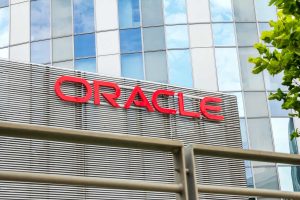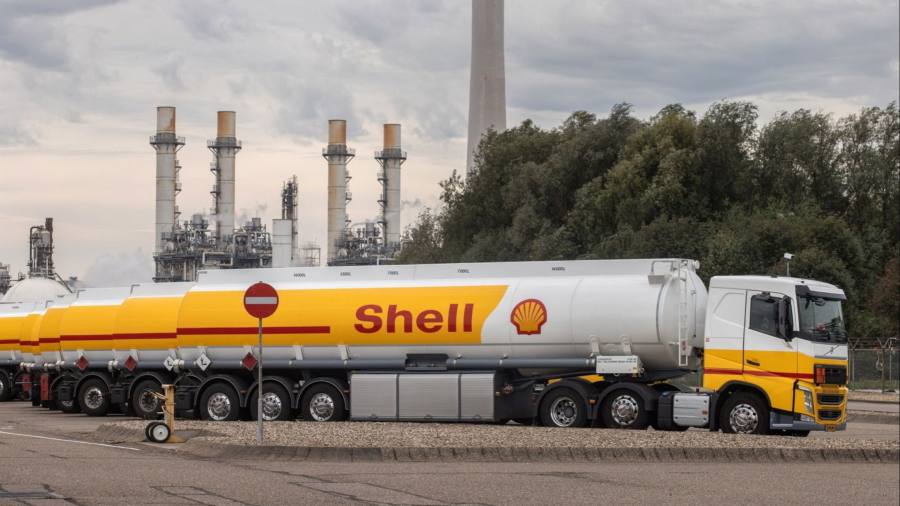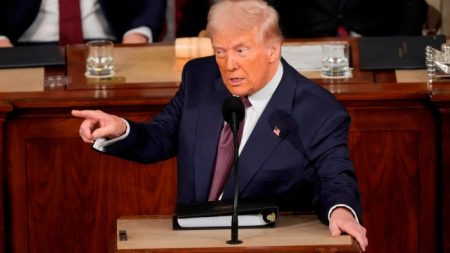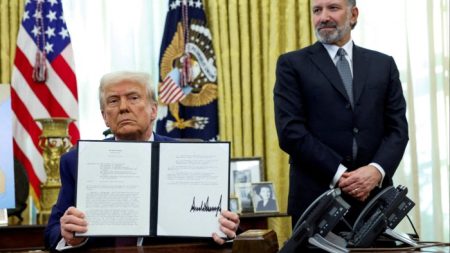Receive free Shell PLC updates
We’ll send you a myFT Daily Digest email rounding up the latest Shell PLC news every morning.
Profits at Shell and TotalEnergies shrank in the second quarter on lower gas and oil prices as the impact of Russia’s war in Ukraine on energy markets wanes.
Shell reported adjusted earnings of $5.1bn in the second quarter, missing analysts’ estimates of $5.6bn — less than half the record $11.5bn it reported last year at the height of the energy crisis and in line with the $5.5bn in the same period in 2021.
Total said adjusted net income dropped to $5bn, down 49 per cent compared with the same period last year.
Shares of the two groups held steady on Thursday despite the falling profits.
The sharp drop in earnings of the UK and French oil companies signalled that 18 months of bumper profits for the oil and gas industry, following Russia’s full-scale invasion of Ukraine, may be drawing to a close.
Prices for liquefied natural gas, for example, averaged $10/mmbtu in the second quarter, Total said, down from an average of more than $50/mmbtu in August last year.
The biggest decline in Shell’s profits came in LNG, with earnings in the group’s integrated gas division almost halving to $2.5bn, from $4.9bn in the first quarter of the year.
Lower prices and weaker trading profits owing to “seasonality and fewer optimisation opportunities” had weighed on performance after a strong first quarter, it said.
“Disappointing numbers,” said Biraj Borkhataria, an analyst at RBC Capital Markets, adding that a $468mn loss in Shell’s chemicals division because of weak demand had been bigger than expected.
The quarterly results are the second under Shell’s chief executive Wael Sawan, who took the top job in January. Sawan, a Shell lifer and former head of the group’s oil, gas and renewables businesses, has pledged to focus on performance to close a market valuation discount to US rivals.
Sawan last month laid out a plan for Shell to cut costs, boost shareholder payouts and devote a higher proportion of spending to oil and gas.
Shell will continue to invest in clean energy projects but will work with more partners in areas such as renewable power generation, leaving Shell to focus on energy trading and supplying low carbon products to its customers, Sawan said on Thursday.
The strategy could involve Shell selling part of its existing power portfolio to outside investors.
“We are going into the market and looking for those partners who can hold hands with us as we try to unlock the renewable generation to access green electrons that feed into that integrated power value chain that we think we can actually create value out of,” Sawan said.
“The energy transition is going to require unprecedented partnerships to take place.”
Shell said on Thursday that it had reduced its capital spending plans to $23bn to $26bn for 2023, down from previous guidance of $23bn to $27bn.
It increased its quarterly dividend by 15 per cent to $0.33 a share, as previously announced, and slowed the pace of planned share buybacks to $3bn in the third quarter and $2.5bn in the fourth quarter.
Like most of its rivals, Shell has used record profits from the past 18 months to embark on a massive share repurchasing scheme. It distributed $26bn to shareholders last year including $18bn in share buybacks, representing almost 10 per cent of its market value.
Total increased its interim dividend by 7.25 per cent to €0.74 a share and committed to $2bn in share buybacks in the third quarter.
ExxonMobil is expected to publish earnings on Friday and BP next week.
Read the full article here















